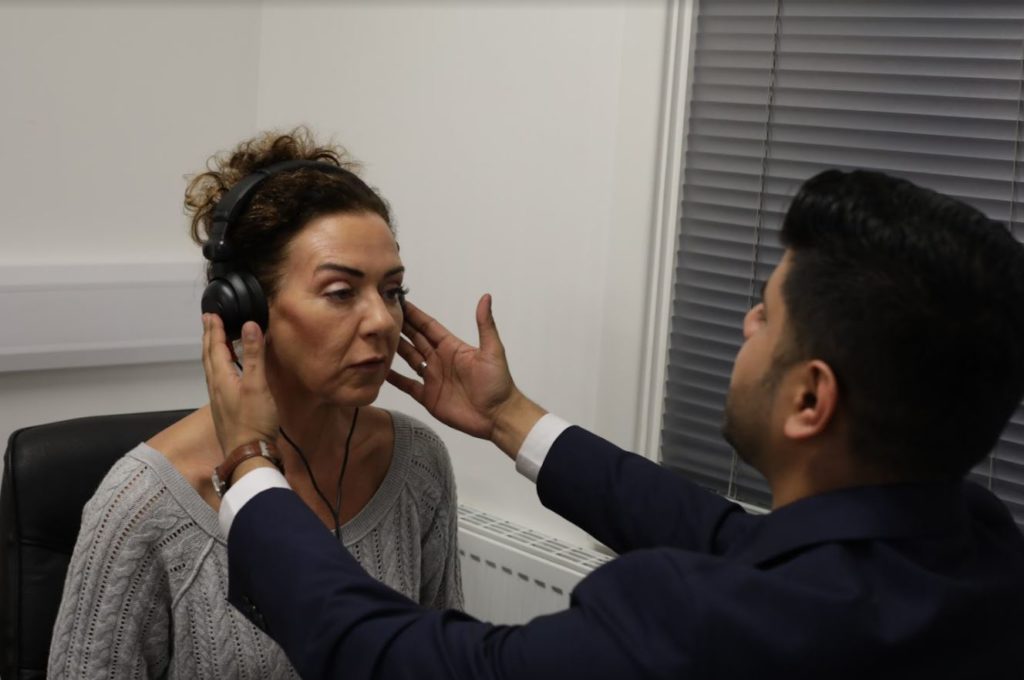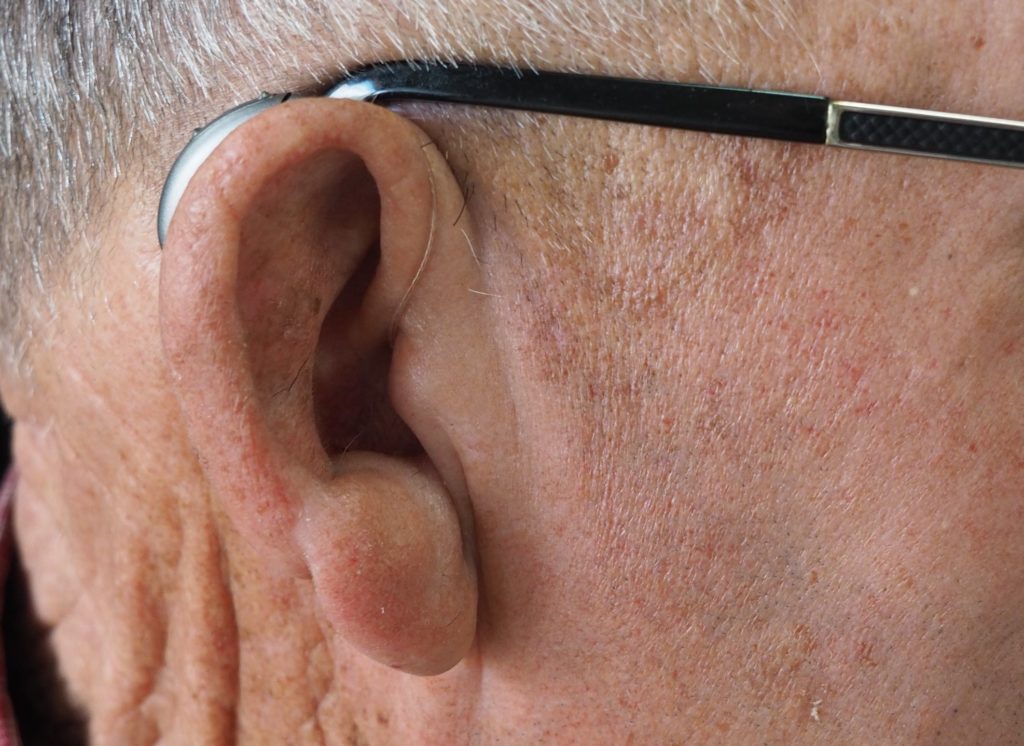As you get older, along with many parts of your body, your ears stop working as well as they used to. Age-related hearing loss is a very common condition also known as Presbycusis, but despite it affecting many people, it doesn’t always present itself in the same ways.
There are three types of hearing loss: Conductive, which is related to the middle or outer ear; Sensorineural, which is based within the inner ear; and Mixed, which is a combination of the two other hearing loss types.
There are multiple causes for hearing loss. Sometimes, it’s simply general deterioration over the years, but there can be more distinct issues that affect your hearing. Prolonged exposure to loud noises can cause long-lasting damage to your hearing, while a build-up of excessive wax could cause a hearing-limiting blockage. Unlike the damage caused by loud noises, this type of hearing loss can be quickly rectified with an ear wax removal session with your local audiologist – often, removing the wax can lead to quickly improved hearing.
Unfortunately, the hearing loss caused by loud noises or general deterioration over time can’t be cured. However, with the support of a hearing specialist, you’ll be able to live your life as close to normal as possible – you don’t have to put up with poor hearing.

What are the symptoms of hearing loss?
From the outside, it might seem obvious – the main symptom of hearing loss is poor hearing!
It’s not that simple though. Often, hearing loss will come about slowly over a long period of time, and patients might not realise they need a hearing aid.
There are some subtle changes in your day to day life that you should look out for, including:
- You struggle to keep up with conversations
- You tend to avoid noisier, crowded places
- Your family and friends keep telling you your TV is too loud, but despite this you keep needing to turn it up
- You have to ask people to repeat themselves
- With us being in the midst of a pandemic, you can’t understand people wearing masks – you may have built up a slight reliance on lip reading without realising
When should I see an audiologist?
If you have a very sudden loss of hearing in one ear, then you should immediately seek medical attention – whilst it’s likely it may be caused by a build-up of wax, it could be something more serious such as a perforated eardrum.
If your hearing loss has come around over a longer period of time, then it’s not as urgent. If you’ve noticed your hearing is negatively impacting your lifestyle, then you should book an appointment to find out what’s causing it, and get the help you need to get back on track.

How do I get my hearing loss diagnosed?
If you’re concerned about changes to your hearing, you should book a hearing test with an audiologist.
Having a consultation with an audiologist enables you to discuss your concerns and worries, and get the results you need.
A hearing test at The Hearing Specialist consists of four key stages, all of which enable us to provide you with the best course of action:
- Discussion: We’ll begin the appointment with a chat about your hearing. Tell us what’s worrying you and what’s caused you to book an appointment. If you provide us with information about your symptoms, we know what to look out for.
- Visual Inspection: We’ll then take a closer at your ear. We’ll use an otoscope to get a magnified look inside your ear, to detect any physical issues that could be causing your hearing loss. If your poor hearing is being caused by something like a wax build-up, we’ll spot it at this stage.
- Hearing Tests: At this point, we’ll actually test how well you can hear. Our process can involve a tone test or speech test, and the results of this will give us a clearer idea of how severe your hearing loss is.
The next steps: Based on our findings from the previous parts of your appointment, we’ll then discuss your options. If we’ve found a wax build-up, we’ll arrange a wax removal appointment. If it looks like your hearing loss may be more long-lasting, we can help to pair you up with the perfect hearing aid for your situation.
Find out more about what to expect before, during and after your hearing test.

Is hearing loss treatable?
Unfortunately, most types of hearing loss aren’t treatable, although it depends on how severe it is, and what’s causing it.
As mentioned earlier, if your hearing loss is being caused by a build-up or blockage of excess earwax, you can have this removed, with the process usually leaving patients with their hearing levels fully restored.
If your hearing has deteriorated or been damaged by loud noise, there’s no “cure”. It doesn’t mean you won’t be able to hear properly ever again though. Choosing the right hearing aid can help you to live life to the full again.
Hearing aid technology has developed at a rapid rate in recent years, with new features and better sound processing becoming more commonplace. Basic hearing aids would previously supply you with some simple amplification – new, more advanced hearing aids process audio so you can hear speech more clearly, and can provide you with a perfect balance of the sounds around you.
The Hearing Specialist offers free 7-day hearing aid trials, so that you can test the device at your own leisure, with no obligation to buy.
If you think you might be struggling with hearing loss, book an appointment today to discuss it with a specialist audiologist and get the help you require. We offer home visits across South London, including Banstead, Croydon, Sutton and surrounding areas. For a home visit, call us on 020 8150 7178, or request a call back through our online form.
If you’d rather visit us at our Wimbledon clinic, appointments are available from Monday to Friday. You can make an appointment instantly online, using our appointment booking page. Alternatively, give us a call on 020 8150 7178, and we’ll find a time suitable for you.




